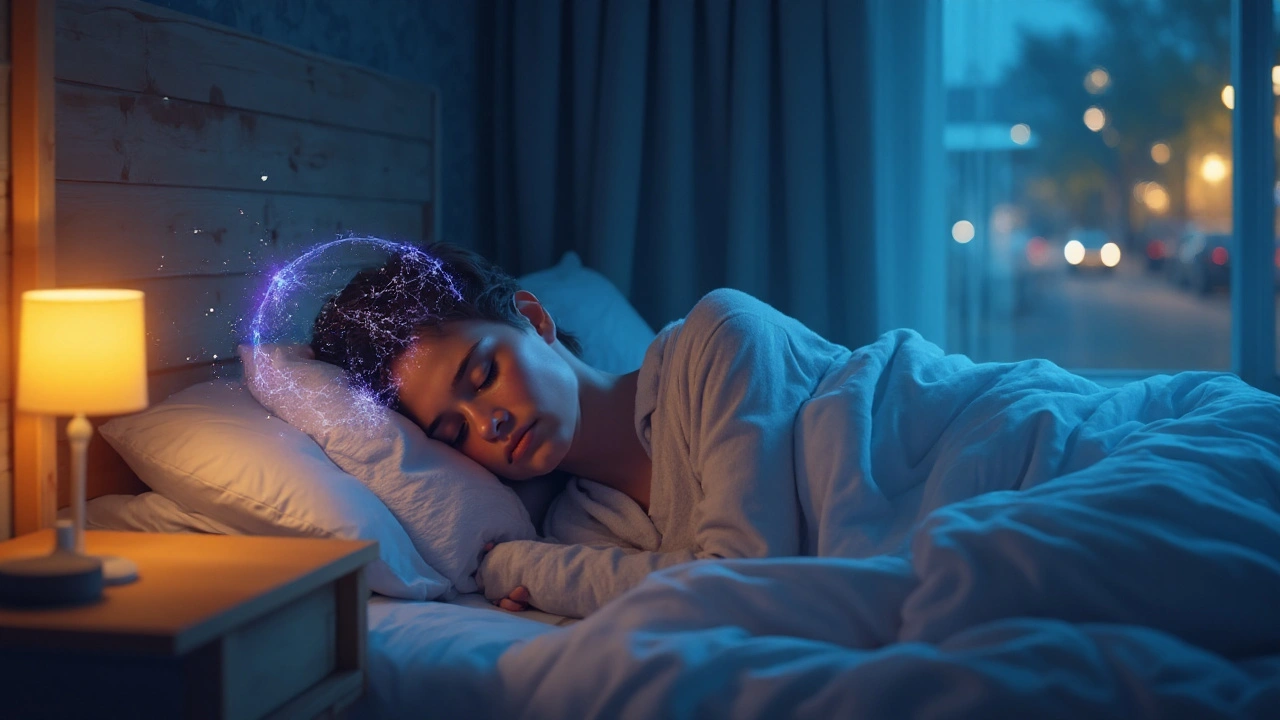Seizure Sleep Patterns: What Happens and How to Manage Them
If you have seizures, you might notice that your nights feel different. Some people wake up confused, others have trouble falling asleep, and a few experience seizures while they’re in bed. These changes aren’t random – the brain’s electrical activity that causes seizures also messes with the sleep cycle. Understanding the link helps you spot trouble early and take steps to get better rest.
Why Seizures Disrupt Your Sleep
During sleep, the brain moves through stages that are important for memory, mood, and overall health. A seizure can interrupt these stages, especially the deep (NREM) and REM phases that you need most. When a seizure happens at night, it can cause a sudden awakening, a feeling of disorientation, or a brief period of confusion called post‑ictal confusion. Even if you don’t have a full seizure, abnormal brain spikes can still fragment sleep, leaving you feeling tired the next day.
Hormones also play a role. The body releases cortisol and melatonin in a balanced rhythm, but seizures can throw off this balance, making it harder to feel sleepy at night or stay awake during the day. Over time, this mismatch can lead to a chronic sleep debt, worsening seizure frequency and lowering quality of life.
Practical Tips to Improve Sleep Quality
First, keep a simple sleep diary. Write down when you go to bed, when you wake up, and any seizure activity you notice. This record helps your doctor see patterns and adjust medication if needed. Second, stick to a regular schedule – go to bed and get up at the same times even on weekends. Consistency trains your brain to expect sleep, making it easier to fall asleep.
Third, create a calm bedroom environment. Dim the lights an hour before bedtime, keep the room cool, and avoid screens that emit blue light. If you hear a seizure warning (like auras), have a bedside alarm or a partner who knows how to respond so you can stay safe without panicking.
Fourth, talk to your doctor about medication timing. Some anti‑seizure drugs cause drowsiness, while others can be stimulating. Taking the right dose at the right time can reduce night‑time seizures and improve how rested you feel. Don’t change doses on your own – always get professional guidance.
Finally, try gentle relaxation techniques before sleep. Deep breathing, light stretching, or a short mindfulness exercise can lower stress hormones that often trigger seizures. Even a five‑minute routine can make a noticeable difference.
Seizure‑related sleep problems can feel overwhelming, but with a few practical steps you can protect your rest and possibly lower seizure frequency. Keep track, stay consistent, and work closely with your healthcare team – better sleep is within reach.

How Sleep Affects Partial Onset Seizures: What You Need to Know
Explore the link between sleep and partial onset seizures, learn how different sleep stages influence seizure risk, and get practical tips for better sleep hygiene.
More Detail